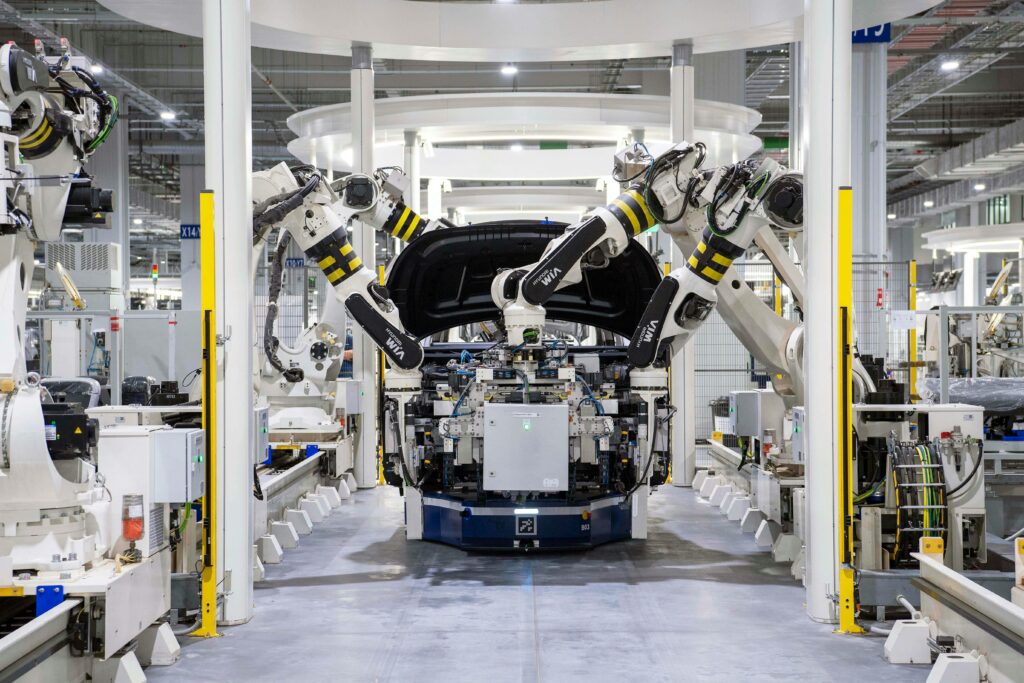Industry and the consequences of the shortage of skilled workers in Germany
For many decades, Germany has been known as one of the leading industrial nations and has made a name for itself. All over the world, Germany stands for strong companies that employ highly qualified staff. Its stable economy has made Germany a global center for many industries. Particularly in mechanical engineering, the Automotive industry and in the high-tech sector, Germany is well known.
Table of contents
- Industry and the consequences of the shortage of skilled workers in Germany
- Why is there such a shortage of skilled workers in the industry?
- Are companies losing patience and moving abroad?
- Why might German companies migrate?
- Why do German companies still choose Germany?
- What measures must politicians take?
Estimated reading time: 8 minutes
However, Germany has also been facing a shortage of skilled workers for some years now. More and more German companies are finding it difficult to find qualified specialists for their industry. Technical professions in particular often remain unfilled, which means that the productivity and innovative strength of German companies in international competition is at risk. In many sectors, there is a shortage of engineers, mechatronics technicians, skilled workers and IT specialists.
Another point is that many experienced specialists are retiring and there are simply not enough new recruits to fill the gap.
This is why more and more questions have been raised in recent years. The question arises as to whether German companies are production sector abroad because they do not have enough skilled personnel. The question also arises as to what German politicians can do to ensure that Germany can maintain its position in international competition in the long term.
Why is there such a shortage of skilled workers in the industry?
Unfortunately, the shortage of skilled workers in Germany is not a short-term problem. It is more of a structural phenomenon. Many different factors have led to this shortage.
First of all, there is demographic change in Germany. Unfortunately, the so-called baby boomers born in the 1950s and 1960s are now retiring. At the same time, too few new workers are coming into the workforce, as the birth rate in Germany has also decreased. It is currently estimated that Germany will have a shortage of up to 7 million workers by 2035. In the skilled trades and technology sectors in particular, many skilled workers are about to retire.
We have already briefly touched on this topic: the birth rate has decreased. In the past, the average woman gave birth to 2.5 children. Now the average is only 1.5 children. This means that there is a shortage of young people who could start training and enter industrial professions.
Many young people are also opting for an academic career rather than an apprenticeship. The rate has risen dramatically in recent years. In 1992, around 65% of school leavers opted for dual training. Today, the figure is less than 40%, and at the same time, the rate of first-year students is rising.
One reason for this is that many young people see industrial and manual professions as less prestigious. They look down on them and worry that they work too much and earn too little. Yet these professions are important for Germany and form the backbone of the German economy.
Another point is that skilled workers from other countries have to overcome difficult and lengthy bureaucracy in Germany. Other countries such as Canada and Australia are much more open and make it easier for workers. On the contrary, they even specifically focus on the immigration of qualified specialists. In Germany, the process is so lengthy that workers often have to wait months or even years for their qualifications for the job from abroad to be recognized in Germany.
The German language is also a deterrent for many workers. Of course, English is also spoken in large corporations, but the authorities expect workers to speak German. Unfortunately, German is not a language that can be learned quickly.
Are companies losing patience and moving abroad?
Many German companies are faced with the decision of whether they want to continue producing in Germany or move their production abroad. If they continue to produce in Germany, they will continue to experience a shortage of skilled workers. In some cases, it may be economically wiser for them to relocate their production abroad.

Why might German companies migrate?
The high labor costs in Germany are a major factor. This means that the location is already expensive. However, the pressure on companies may increase further if there is a shortage of skilled workers and wages continue to rise as a result. In contrast, there are well-trained skilled workers in Eastern Europe. Wages are significantly lower in Poland, the Czech Republic, and Hungary in particular. In addition, the labor laws there are much more flexible. In Germany, there are strict regulations on working hours, protection against dismissal, and collective agreements. In other Eastern European countries in particular, companies enjoy more freedom.
In other countries, international companies also attract employees. They offer them tax incentives and support programs. In recent years, China, India, and Vietnam in particular have made a name for themselves in industry and are considered attractive locations. Land is cheaper there, energy costs are much lower, and the countries provide German companies with targeted subsidies if they set up production there.
Why do German companies still choose Germany?
However, there are still plenty of reasons why companies continue to choose Germany for their production. For one thing, the high quality of the workforce plays a major role for companies. Not only in Germany, but all over the world, German workers enjoy an excellent reputation. Employers value their punctuality, reliability, and the personal responsibility they take on in their jobs. Their precise work and innovative thinking are also things that employers all over the world appreciate.
Many things are changing at the moment, and Germany continues to offer companies a stable political and economic environment. In many countries, companies have to contend with political uncertainty, corruption, or sudden changes in the law.
Proximity to research also plays a major role. Universities and technical colleges work closely with industry so that new technologies can be developed quickly and integrated into production.
What measures must politicians take?
Germany must remain attractive as a production location. For this to be the case, targeted measures must be taken by the government.
First of all, the training system in Germany must offer more incentives for young people to opt for it. This could be higher training pay, for example. Many young people decide against an apprenticeship because it seems less financially attractive than studying. However, if trainees are paid appropriately, they are more likely to choose a practical profession.
Cooperation between schools and companies is also a great help. Practical lessons are offered, or pupils can complete a work placement and go on excursions to industrial companies. In this way, they learn about the importance of technical professions.
Germany also needs to recruit foreign skilled workers in a targeted manner. Canada, for example, has a points system. Highly qualified workers are brought into the country more quickly. This can alleviate the labor shortage.
It is also important that bureaucracy is reduced. It is unacceptable that highly qualified workers have to wait years for their qualifications to be recognized. In the meantime, they do inferior jobs and feel frustrated. Many return to their home country early. Faster procedures and digital application processes need to be introduced. Foreign employees also need to be trained when it comes to the German language.
There are still many things that need to be addressed by politicians in the future – but only through targeted support and attractive measures for foreign employees will Germany be able to maintain its status in the global economy.
Similar topics
